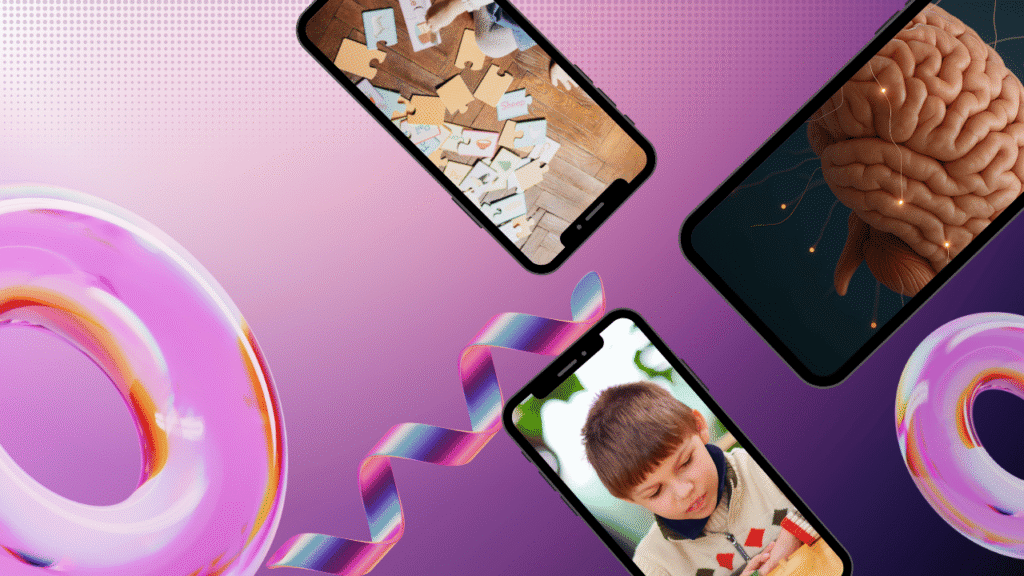Cognitive training has gained significant attention as people look for ways to improve their memory, focus, and problem-solving skills. With the growing capabilities of artificial intelligence (AI), cognitive training apps have evolved into highly personalized and effective tools for brain health. These applications combine neuroscience principles with advanced algorithms to deliver targeted exercises that adapt to each user’s needs, creating a more engaging and measurable path toward cognitive improvement.
Understanding Cognitive Training
Cognitive training refers to a structured set of activities designed to improve specific brain functions. The goal is to strengthen mental skills in a way similar to how physical workouts enhance muscle strength.
Core cognitive skills targeted include:
- Memory – Enhancing short-term and long-term recall abilities
- Attention – Improving concentration and focus
- Problem-solving – Developing logical and creative thinking
- Processing speed – Increasing how quickly the brain processes information
- Language skills – Building vocabulary and verbal reasoning
Cognitive training apps make these exercises more interactive and accessible, bringing mental fitness routines to anyone with a smartphone or computer.
The Rise of AI in Cognitive Training
Artificial intelligence has transformed the way cognitive training apps operate. Instead of static exercises, AI uses real-time performance data to adjust difficulty, ensuring that users are always challenged but not overwhelmed.
Key AI contributions include:
- Personalizing training plans
- Identifying strengths and weaknesses
- Optimizing progression speed
- Providing detailed feedback
The result is a smarter, more responsive approach that increases engagement and effectiveness.
Core Features of AI-Powered Cognitive Training Apps
Modern AI-based cognitive training apps offer a variety of features that make them stand out:
Adaptive Difficulty
The exercises adjust automatically based on performance, keeping challenges aligned with the user’s progress.
Real-Time Feedback
AI provides instant insights into performance, helping users understand areas for improvement.
Gamification
Incorporating points, levels, and achievements encourages consistent use.
Device Integration
Some apps connect with wearables or health trackers to monitor brain activity, heart rate, and stress levels, creating a more holistic approach to cognitive health.
Popular AI Technologies Used
Several AI techniques power cognitive training apps, including:
- Machine Learning – Analyzes performance data to adapt training routines.
- Natural Language Processing (NLP) – Supports language-based exercises and conversational interfaces.
- Computer Vision – Recognizes gestures or facial expressions in interactive tasks.
- Neural Networks – Builds personalized learning models that improve over time.
These technologies allow apps to deliver training experiences that feel tailor-made for each user.
Benefits of AI-Powered Cognitive Training
AI-driven cognitive training apps provide numerous benefits, such as:
- Customization – Training is adapted to individual strengths, weaknesses, and goals.
- Progress Tracking – Users can see measurable improvements over time.
- Accessibility – Available for various age groups, from students to seniors.
- Evidence-Based – Many apps integrate findings from neuroscience research.
This flexibility makes them suitable for casual users, students preparing for exams, and older adults aiming to maintain cognitive health.
Notable Examples of AI Cognitive Training Apps
Some well-known cognitive training apps include:
- Lumosity – Offers a range of games targeting memory, attention, and flexibility.
- Elevate – Focuses on communication and analytical skills.
- CogniFit – Provides personalized assessments and training for multiple cognitive areas.
- Peak – Combines daily workouts with adaptive challenges.
Each app uses AI to ensure exercises evolve alongside the user’s abilities.
Scientific Evidence and Research Support
Research has shown that well-structured cognitive training can improve targeted skills. AI enhances these benefits by making the process more adaptive and personalized. However, some studies argue that improvements may not always transfer to real-world tasks, and more long-term research is needed to confirm lasting benefits.
Potential Risks and Limitations
While cognitive training apps offer many benefits, users should be aware of:
- Overreliance – Relying solely on digital exercises without real-world mental challenges can limit benefits.
- Privacy Concerns – Apps collect sensitive performance data that must be securely stored.
- Misleading Claims – Not all apps are backed by rigorous scientific research.
Being informed and choosing reputable platforms is essential.
Best Practices for Using AI Cognitive Training Apps
To make the most of cognitive training apps:
- Set realistic goals and track your progress.
- Combine app-based exercises with offline activities like reading, puzzles, or physical exercise.
- Review privacy policies to understand how your data is handled.
Following these practices ensures a balanced approach to cognitive improvement.
Future Trends in AI-Powered Cognitive Training
Looking ahead, AI cognitive training apps may integrate with emerging technologies such as:
- Brain-Computer Interfaces (BCIs) – Allowing direct communication between the brain and digital devices.
- Virtual and Augmented Reality – Creating immersive, real-world-like training scenarios.
- Preventive Mental Health Care – Using AI to detect early signs of cognitive decline.
These innovations will likely make cognitive training even more effective and engaging.
Conclusion
Cognitive training apps powered by AI represent a promising intersection of neuroscience and technology. They offer personalized, adaptive, and engaging methods for improving mental skills across different age groups. While not a replacement for real-world cognitive challenges, they serve as valuable tools in maintaining and enhancing brain health. With ongoing AI advancements, the future of cognitive training looks both exciting and impactful.

